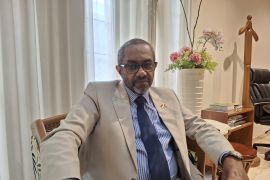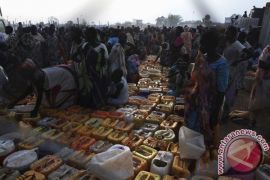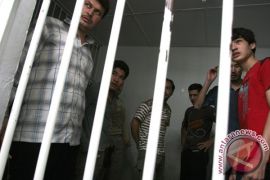Mostly African insurgents in Darfur took up arms against the Arab-dominated government in 2003, accusing the government in Khartoum of neglecting the remote territory.
Khartoum mobilised troops and allied Arab tribes to quell the rebellion, unleashing a wave of violence that the United Nations and other observers estimate may have killed hundreds of thousands of people.
International efforts to broker an end to the conflict have failed to produce lasting peace, hampered by rebel divisions, continuing military operations and other difficulties.
Army spokesman Sawarmi Khalid Saad told Reuters that on Tuesday the army had attacked fighters of the rebel Justice and Equality Movement (JEM) in the area of Baashim in North Darfur.
"The operation was part of efforts to clean the area (of JEM fighters). The army managed to destroy the enemy troops," he said.
JEM spokesman Gibreel Adam Bilal confirmed fighting in the area but said the rebels had launched an attack and destroyed several army vehicles.
"A large number of soldiers got killed," he said, a claim that was dismissed by the army spokesman.
Violence in Darfur, where the United Nations and the African Union maintain a huge joint peacekeeping operation, has subsided since its peak in 2003 and 2004, but rebel and tribal fighting and banditry has continued to plague the territory.
Some 300,000 people may have died in the conflict, the United Nations has estimated.
The International Criminal Court has indicted Sudan`s President Omar Hassan al-Bashir and issued last week also an arrest warrant for Defense Minister Abdel Raheem Muhammad Hussein for war crimes in the region.
Khartoum has put the death toll at 10,000 and dismissed the charges as politically motivated and baseless.
Last year, Khartoum signed a peace deal with an umbrella of smaller rebel groups, but JEM and other major rebel groups refused to sign.
JEM is part of a rebel alliance that wants to topple Bashir. (*)
Editor: Kunto Wibisono
Copyright © ANTARA 2012







